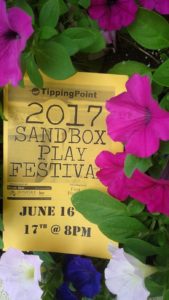 Anton Chekhov’s four hundred plus short stories are an easier writing topic than his plays. My curiosity took me to Chekhov’s most famous plays: The Seagull, Three Sisters, The Cherry Orchard and Uncle Vanya. Why did Chekhov shift from short stories to plays? His first play, perhaps marketed incorrectly as a comedy, was not received well. Eventually, he wrote another play and fourteen in total. What was the attraction of the theatre? I explored how to write a play, more specifically a 10-Minute Play to examine Chekhov’s motivation.
Anton Chekhov’s four hundred plus short stories are an easier writing topic than his plays. My curiosity took me to Chekhov’s most famous plays: The Seagull, Three Sisters, The Cherry Orchard and Uncle Vanya. Why did Chekhov shift from short stories to plays? His first play, perhaps marketed incorrectly as a comedy, was not received well. Eventually, he wrote another play and fourteen in total. What was the attraction of the theatre? I explored how to write a play, more specifically a 10-Minute Play to examine Chekhov’s motivation.
What is a 10-Minute Play?
In addition to a full length play (90 minutes), a “want to be” playwright can choose from the one act play (30 minutes) and a 10-Minute Play. As described by Sam Graber for the Playwright’s Center, the 10-Minute Play is a “bolt of theatrical lightning.” The play has minimal props and a small cast. The play’s ten pages include an organized structure and writing elements of action, dialogue, character, and theme.
Where to watch a 10-Minute Play?
Play festivals highlight short plays for several reasons. The productions are inexpensive and can generate additional revenues for theatre companies. The audience enjoys a wide variety of themes and situations. And less experienced directors, actors, and playwrights get a shot at the spotlight. The Sandbox Play Festival, for example, produced four plays in a one hour time frame. The festival awarded a judges’ favorite and an audience favorite. At the end of the hour, my friends and I had a difficult time choosing a favorite. All of the plays were enjoyable and outstanding in a unique way.
How to enter in a play festival?
The first challenge is to write the play and use a play format. As in The Revenant -A Good Idea for a Film, both screenplay and play need dramaticized action. The format allows no time for boring exposition disguised as dialogue. I wrote a play with four characters, but my writing group suggested to eliminate one character and begin a page later where the action really began. According to Graber, a 10-Minute Play must ask a question. Of course, this is not a literal question but more of an implied and intriguing question about society, culture or people. This quick grab of attention sounds like a short story. The difference is in the structure which escalates like a novel in a short ten minutes.
The next challenge is to submit the play. Websites list play festivals and play submission deadlines. The biggest festivals offer prizes of $1000. Smaller festivals reward playwrights with production credit. Do playwrights travel to the production of a play? Maybe this was Chekhov’s attraction? Seeing his words acted on stage must have been a thrill. If I choose Chekhov’s path, my next chapter in writing could easily be titled – write, submit, road trip.
Interesting. Did you like the plays or the stories better?
Greg, Thanks for being the first to read and comment. Chekhov was innovative on both the short story and the play. His short stories are my August subject. And for my September post, I am thrilled to find Chekhov’s The Seagull in performance. So I’ll hold judgement until after the show.